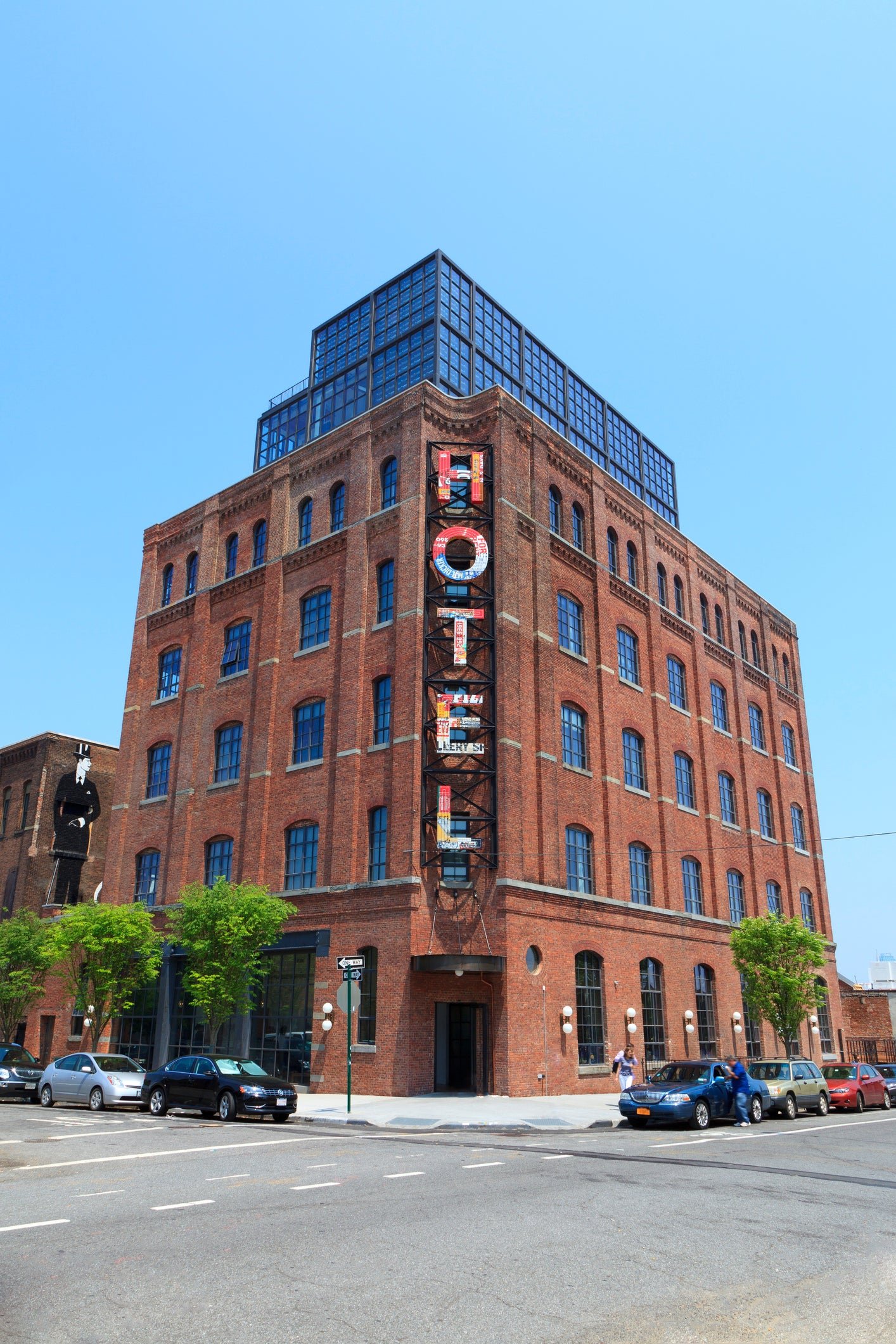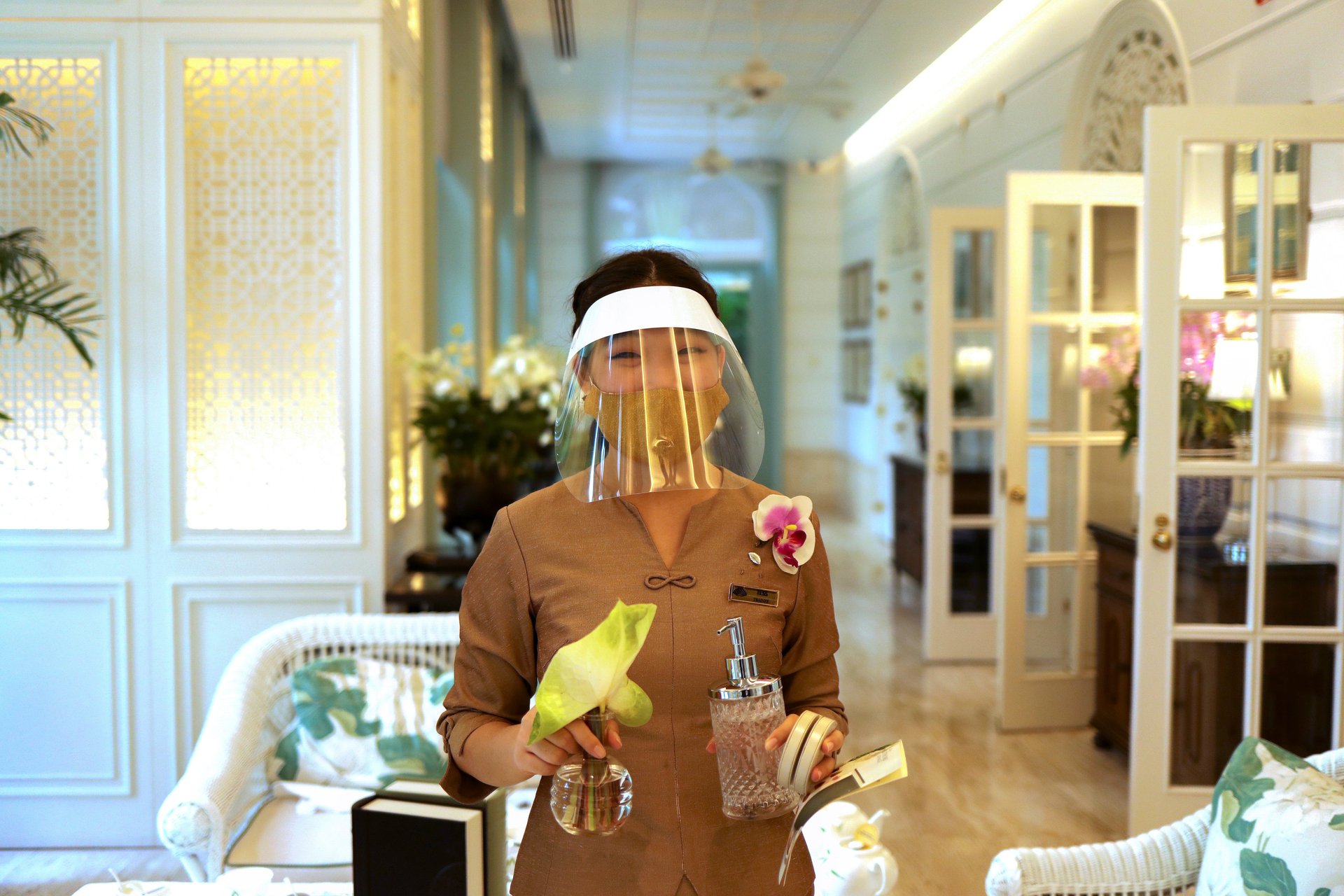Hotels tweak their model and mission to survive the pandemic
The coronavirus has brought nothing but bad news for the hotel industry. With business and holiday travel virtually grinding to a halt, a recent McKinsey report suggests most properties won’t see regular occupancy rates until 2023.


The coronavirus has brought nothing but bad news for the hotel industry. With business and holiday travel virtually grinding to a halt, a recent McKinsey report suggests most properties won’t see regular occupancy rates until 2023.
Many luxury properties with high overhead expenses first responded to the pandemic by completely shutting their doors. Others offered free lodging and meals to first responders. Now hotels are at the stage where they’re once again trying to attract paying guests. That means drawing from the lessons of the initial Covid-19 wave to keep patrons safe while experimenting with new revenue-generating models—and re-evaluating their purpose of the hospitality industry in the process.
Safety as the first amenity
Peter Lawrence, owner of the Wythe Hotel in Brooklyn, New York, says the hotel was determined to stay open amid the “tsunami of cancellations.” For about three months, at the height of the pandemic in New York City, the 70-room boutique hotel hosted doctors and nurses. Lawrence tells Quartz that not a single member of the Wythe staff contracted Covid-19, despite working in a building with medical personnel who were exposed to the virus. “We really got a great crash course from those guests on how to keep everybody safe,” he says.
Without fancy disinfecting robots or an army of cleaners, he explains that following basic health protocols—wearing masks, diligent sanitation, and social distancing—made all the difference. The hotel’s architecture helped too. Housed in a century-old textile factory, the Wythe’s rooms are self-contained, and the covered patio has allowed them to maintain a very pleasant open-air restaurant.
Operating a hotel during a pandemic hinges on its ability to persuade guests that it’s safe. David Sherwyn, associate professor at the Cornell School of Hotel Administration, tells Quartz that having a trusted brand is a big advantage right now. “In a way that we’re feel more comfortable going to a branded hotel at 3 am when we’re in a road trip than we are with a family-owned property, we’re going to trust a brand has put a significant effort into ensuring safety,” he explains. “The Marriotts, Hyatts, the InterContinentals … those types of brands will do everything in their power.”
Indeed, big hotel chains are aligning themselves with renowned medical research institutions. The Four Seasons, the New York property of which served as a dorm for first responders, has partnered with Johns Hopkins University; Marriott has formed a “Global Cleanliness Council,” with experts from Purdue University and Cornell University; and Hyatt is seeking accreditation from the Global Biorisk Advisory Council, an Illinois-based group that describes itself as the “cleaning industry’s only outbreak prevention, response and recovery accreditation for facilities.” Properties that pass its inspection get a star-shaped decal to display.
Boutique hotels have to work a bit harder to prove their trustworthiness, says Sherwyn. Citizen M, the Dutch boutique hotel brand, has been touting a touch-free guest and highly sanitized experience featuring cashless transactions, vigorous cleaning protocols including eschewing carpets and bedspreads, and enhanced room service dining.

Lawrence says that Wythe guests who are nervous about staying in rooms formerly inhabited by healthcare workers feel more at ease after hearing how the hotel contained the virus. Unlike other brands that have a laissez-faire policy on wearing PPE, the Wythe strictly requires that all hotel guests and diners wear masks.
New revenue models
“The hotel industry is going to be in the process of reimagining a number of different things,” explains Sherwyn, from housekeeping protocols to viable sources of revenue, since conference ballrooms and rooms remain largely empty.
Hilton, Choice Hotels, and Wyndham are mulling leasing properties to higher learning institutions looking for safe student housing solutions for the coming semester. Hotels are also getting some income by leasing rooms to governments seeking overflow accommodations for Covid-19 patients with less severe symptoms. Again, smaller hotels have to be scrappier and win the favor of local clientele. New York’s family-owned Roger Smith hotel, for instance, has begun leasing its lobby to pop-up retailers. Citizen M introduced “staycation packages,” bundling hotel stays with local dining and entertainment options.
Lawrence says it’s vital for hotels to remain open during the pandemic. “If ever there was a time for hospitality to take a leading role, this is it,” he says. “It’s not going to make any of us a profit this year, but it’s one way to stay in business.”
Akin to a founding concept of a “restaurant”—an establishment that offers “restoration” for both body and mind—Lawrence believes that the hospitality industry can offer a respite from the grueling mental stress of living in constant fear of a deadly airborne virus. With very limited domestic travel in the US, Lawrence says New Yorkers are staying at the Wythe to decompress from their domestic circus, even for a day or two. Some guests are using hotel suites as remote offices, especially if they have a deadline or an important Zoom call to take. ”It’s a different role that we have to play right now,” he says. “It’s based on the idea that people want to feel rested and restored.”